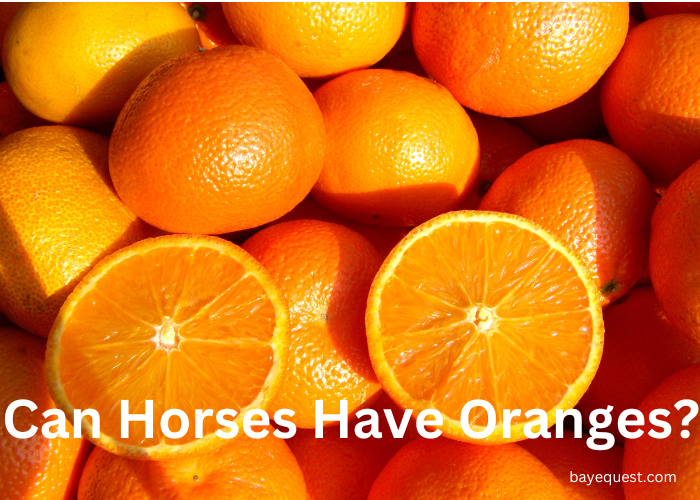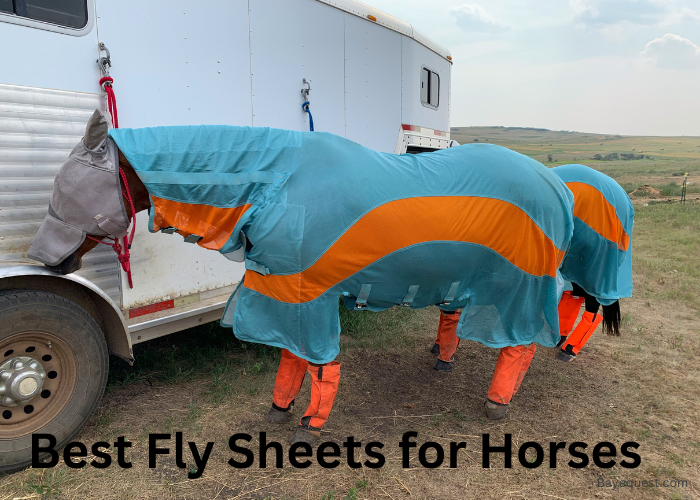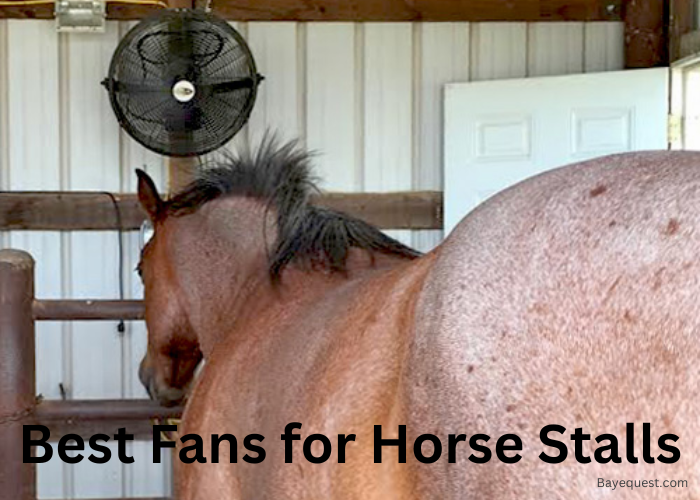Can horses munch on oranges? It’s a question that might surprise you. We know horses love apples and carrots, but what about citrus fruits?
Oranges are juicy, sweet, and packed with nutrients. But are they safe for our equine friends? In this blog, we’ll dive into whether horses can enjoy this tangy treat.
We’ll explore the benefits, the risks, and what you need to know before tossing an orange into the feed bucket. Stick around to find out if oranges could be a new favorite for your horse.
Can Horses Have Oranges? Key Takeaway
Horses can eat oranges, including the peel and seeds, in moderation. Oranges provide Vitamin C, potassium, and fiber, supporting immune health and digestion. The peel contains antioxidants that may reduce oxidative stress. However, too many oranges can upset a horse’s stomach, so they should only be offered as an occasional treat.
Do Horses Eat Oranges?
Yes, horses eat oranges. They provide beneficial nutrients like vitamin C, potassium, and fiber.
However, feed oranges in small quantities due to their acidity and sugar content to avoid digestive upset and maintain a balanced diet. Always gradually introduce any new food, including oranges, to your horse’s diet to monitor how it reacts.
Are Oranges Safe for Horses to Eat?
Yes, oranges are safe for horses to eat in moderation. They provide beneficial nutrients like vitamin C, potassium, and dietary fiber, which can be a healthy addition to a horse’s diet.
However, because oranges are acidic and contain sugar, they should be fed in small amounts.
Always introduce oranges and other new foods gradually to your horse’s diet and observe for any adverse reactions.
How Many Oranges Can Horses Eat Daily?
The amount of oranges you can safely feed your horse depends on their diet, size, and health condition. Generally, it’s best to treat oranges as an occasional treat rather than a daily food item.
A good rule of thumb is to feed no more than one or two small orange segments a few times a week. This helps ensure the horse’s diet remains balanced and prevents the risks associated with overfeeding citrus.
Always gradually introduce oranges into your horse’s diet to monitor their reaction. Also, consult with a veterinarian if you have any concerns about how specific foods may affect your horse’s health.
Can Horses Eat Orange Peels?
Yes, horses can eat orange peels, but there are a few considerations to remember. Orange peels are not toxic to horses and are a fiber source.
However, they are much tougher and more bitter than the fruit, which might not be as palatable to some horses.
Additionally, ensure the oranges have not been treated with pesticides or other chemicals often present on the skins of commercially grown citrus fruits.
These can be harmful to horses. If you feed your horse orange peels, use organically grown oranges and wash them well before feeding.
As with any new food, introduce orange peels gradually into your horse’s diet to see how they react to it.
Can Horses Eat Tangerines?
Yes, horses can eat tangerines. Tangerines, like oranges, are safe if given in moderation.
Tangerines are a good source of vitamins, particularly vitamin C, and provide hydration due to their high water content. However, the sugar content in tangerines should be monitored. Too much can lead to health issues, particularly in horses prone to laminitis or diabetes.
As with any new addition to your horse’s diet, introduce tangerines slowly to ensure your horse has no adverse reactions. Also, remove any seeds before feeding tangerines to prevent any choking hazards.
Can Horses Eat Lime?
Yes, horses can eat limes, but they are usually not as well received as other citrus fruits. Limes are safe in terms of toxicity.
However, their strong, sour flavor and high acidity make them less palatable to horses.
As with any citrus fruit, if you choose to offer lime to your horse, do it sparingly and as a small part of a varied diet.
Can Horses Eat Lemon?
Yes, horses can eat lemons, but similar to limes, they are not a preferred choice due to their strong, sour taste and high acidity. Lemons are not toxic to horses, but their sharp flavor may be off-putting. Their acidity can potentially cause digestive discomfort if consumed in significant amounts.
If you feed your horse lemon, do it in very small quantities. As with other citrus fruits, remove any seeds to prevent choking hazards. Also, ensure the lemons are free from pesticides and chemicals, especially if offering the peel.
Can Horses Eat Clementines?
Yes, horses can eat clementines. Clementines are a milder, sweeter citrus fruit than lemons and limes, making them more palatable.
They are safe for horses to consume in moderation and provide similar nutritional benefits as oranges.
Like other fruits, clementines are fed in moderation due to their sugar content. Remove the seeds to prevent choking, and gradually introduce clementines into your horse’s diet.
Can Horses Eat Orange Seeds?
It’s best to avoid feeding orange seeds to horses. While a few seeds are unlikely to cause serious harm, orange seeds contain small compounds that can be toxic in larger quantities.
Additionally, seeds can pose a choking hazard or cause intestinal blockages, particularly in smaller horses or ponies.
Remove all seeds first when feeding your horse oranges or citrus fruit. This helps prevent any potential health risks.
Interesting read: Can Horses Eat Frozen Blueberries?
Health Benefits of Oranges for Horses
Oranges can offer several health benefits for horses when included in a balanced diet and fed in moderation. Here are some key benefits:
1. Oranges are an excellent source of vitamin C, which acts as an antioxidant. It can help boost the immune system, aid in iron absorption, and promote healthy skin and coat.
2. Oranges have a high water content, which can help keep horses hydrated.
The fiber in oranges can help promote good digestive health by aiding in regular bowel movements.
3. This essential nutrient in oranges helps maintain proper fluid balance and nerve function in horses.
4. Oranges contain folate, which is important for cellular repair and maintenance.
5. The low sodium content in oranges is beneficial for maintaining healthy blood pressure levels.
6. Oranges contain flavonoids, known for their anti-inflammatory and antioxidant properties.
Nutritional Value of Oranges
This table outlines the general nutritional value of oranges, per 100 grams of raw fruit:
| Nutrient | Amount |
| Calories | 47 kcal |
| Water | 87 g |
| Protein | 0.9 g |
| Carbohydrates | 11.75 g |
| Sugar | 9.35 g |
| Fiber | 2.4 g |
| Fat | 0.12 g |
| Vitamin C | 53.2 mg |
| Potassium | 181 mg |
| Calcium | 40 mg |
| Vitamin A | 11 µg |
| Folate (Vitamin B9) | 30 µg |
| Magnesium | 10 mg |
How to Prepare an Orange for a Horse
Preparing an orange for a horse is relatively simple, but it’s important to do it correctly to ensure the safety and health of your horse. Here’s a step-by-step guide on how to prepare an orange for a horse:
Choose fresh oranges. Select fresh, ripe oranges that are free from mold and excessive softness. Organic oranges are preferable to avoid pesticide residues.
Wash thoroughly. Wash the orange under running water to remove dirt, bacteria, or chemical residues. Consider gently scrubbing the surface with a brush if the orange isn’t organic.
Peel the orange. Remove the peel from the orange. Even though horses can technically eat orange peels, they are often treated with chemicals and can be tough to digest. Peeling removes any bitter outer rind, which most horses might not find palatable.
Remove seeds. Make sure to remove all the seeds from the orange slices. Seeds can be a choking hazard and may contain compounds not ideal for your horse to ingest in larger quantities.
Cut into appropriate sizes. Slice the orange into small, manageable pieces that are easy for your horse to eat. This helps prevent choking and makes it easier for them to digest.
Feed in moderation. Introduce orange pieces gradually into your horse’s diet, especially if they’ve never had oranges. Start with a few small pieces to see how they react, taste and digestive response.
Monitor your horse. After feeding oranges for the first time, observe your horse for signs of digestive upset or discomfort. If any adverse reactions occur, discontinue feeding oranges and consult your veterinarian.
Can Horses Drink Orange Juice?
No, horses should not drink orange juice. Orange juice is high in sugar and acidity, which can harm horses.
Excessive sugar can lead to obesity and exacerbate conditions like laminitis, while acidity can cause digestive upset. Furthermore, orange juice lacks the fiber of whole oranges, which benefits a horse’s digestive health.
If you want to provide some of the benefits of oranges, feed a small amount of the whole fruit, ensuring it’s properly prepared by removing seeds and peel.
Should Certain Horses Not Eat Oranges?
Yes, there are certain horses for whom oranges might not be a suitable treat. Horses with the following issues should not be given oranges:
1. Horses that have metabolic conditions should avoid high-sugar fruits like oranges. The sugar content can exacerbate these conditions.
2. Horses prone to laminitis should not consume sugary treats, including oranges. The fructose in oranges can trigger a laminitis episode.
3. Horses with dental problems like sensitive gums and teeth.
4. Horses with sensitive digestive systems also react poorly to citrus fruits. The acidity and citrus oils might cause gastric upset or diarrhea.
5. Horses on a strictly controlled diet should also not be given oranges for health or performance reasons.
Things to Remember When Feeding Oranges
When feeding oranges to your horse, keep these simple pointers in mind:
Start slow. Introduce oranges gradually. Begin with a small piece to see how your horse likes it and how their body reacts.
Moderation is key. Oranges are treats, not regular diet items. A slice or two is plenty.
Prep properly. Always peel the oranges and remove the seeds to avoid choking or digestive issues.
Watch for reactions. Keep an eye on your horse after they eat an orange. Look for signs of stomach upset or discomfort.
Keep it clean. If you’re not using organic oranges, wash them well to remove pesticide residues.
Health first. If your horse has health issues like diabetes or is prone to laminitis, it’s best to skip the oranges altogether.
Risks of Feeding Oranges to Horses
Feeding oranges to horses can offer some nutritional benefits, but risks are also involved. They include:
- Digestive upset
- Sugar content
- Choking hazard
- Pesticide exposure
- Allergic reactions
- Dental issues
Alternative Treats to Oranges
If you’re looking for alternative treats to oranges for your horse, plenty of other safe and tasty options exist. Here are some popular choices that are generally well-received and beneficial:
- Apples
- Carrots
- Bananas.
- Watermelon (Read also: Can a horse eat watermelon?)
- Pears
- Celery
- Pumpkin
- Cucumbers
- Beetroot
- Turnips
- Grapes
- Strawberries
FAQs
Can horses have bananas?
Yes, horses can have bananas. Bananas are safe for horses to eat, including the peel, which is nutritious. They should be fed in moderation due to their sugar content.
Can horses eat grapes?
Yes, horses can eat grapes. Grapes are safe for horses in small quantities. However, due to their high sugar content, they should be given as an occasional treat.
Can horses have strawberries?
Yes, horses can have strawberries. They are generally safe and make a healthy treat in moderation. Ensure they are clean and free from mold or pesticides.
Can horses eat carrots?
Yes, horses can eat carrots. Carrots are a popular treat for horses, providing essential nutrients and fiber. They should be fed chopped or sliced to prevent choking.
Can Horses Eat Oranges? Conclusion
So, can horses have oranges? Absolutely. Remember, like any treat, oranges should be given in moderation.
They’re not just a sweet snack. They bring good stuff like vitamin C and hydration into your horse’s diet.
But, keep it simple—peel those oranges, ditch the seeds, and serve them in small, tasty bits. Whether it’s a sunny day treat or a bright addition to their meal, your horse can enjoy this citrus delight safely.
Always watch how they react, and if in doubt, chat with your vet. Happy feeding, and may your days be as bright and sweet as oranges.








